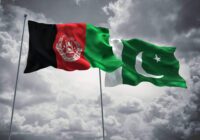Tunisia has come further than any post-Arab Spring nation — so it’s no wonder it drew the Islamic State’s ghastly attention.
After the tragic Islamic State (IS) attack on tourists visiting the iconic Bardo Museum in Tunis, one key point needs reasserting: Tunisia has been the Arab world’s post-2011 success story. It is heartening to see a long-authoritarian Muslim country opening itself up to widespread participation in governance and social inclusion, and doing so in a way that respects both Islamic and secular values.
It was precisely this strength that drew the Islamic State’s ire and its local partisans’ fire. But neither the attack’s occurrence, nor the institutional problems it exposed should provoke a domestic or international response that suffocates the fledgling democratic order.
Organizations such as al-Qaeda and the Islamic State, different as they are, emerged from common Arab regional experience. For decades, a plethora of post-colonial security (mukhabarat) states in the region embraced ever more cronyistic and repressive rule. They simply deemed harsh authoritarianism necessary, and saw it as the only way to fend off an array of opposition groups inspired by selective readings of Islamic doctrine or regional history.
Since these mukhabarat states undermined any peaceful opposition, religious and secular alike, some of their domestic opponents embraced the exact sort of anti-state, anti-Western violence that confirmed the darkest Islamist stereotype.
In this way, violent, isolationist Islamist politics and correspondingly violent state attempts to crush them simply reinforced one another. That left little room for pluralistic, free domestic expression. On top of that, the strategy stopped working: Widespread citizen mobilization ended up toppling most mukhabarat regimes, including Tunisia’s.
Tunisia and its two immediate eastern neighbors, Libya and Egypt, all overthrew repressive regimes in 2011. But Tunisia was the only one to emerge as a viable democracy because it was able to strike a particular balance.
On the one hand, it did not have a strong left-over military “deep state,” as in Egypt, whose army and intelligence services were hardly committed to an open political system. On the other hand, perhaps helped by its small demographic and geographical size, Tunisia could cobble out a new order through the reconfiguration of existing political groups, all of which had been crushed in Libya.
This is how Tunisia avoided both a return to military rule, as in Egypt, and a descent into violent chaos, as in Libya. The balance struck there is exactly the kind of political order that threatens organizations such as IS. These groups can only inspire and recruit a sufficient range of disenchanted Arabs and Muslims if they have no hope of living in a free, self-determined, pluralist society.
A core ideological premise of IS and similar violent movements is that pluralistic, flexible sociopolitical systems are anathema to Islam, and nothing more than a Trojan horse for neo-imperial domination and religious humiliation. Excessively authoritarian, Islamophobic or militaristic behavior by Western countries only flatters this premise and is, therefore, a major goal of militant attacks.
Yet Tunisia itself is a clear riposte to this ideology — proof that Muslims of diverse opinions about the proper role and nature of Islam in politics can overcome the polarization that has occurred elsewhere.
The three-year process that led to Tunisia’s new constitution and freely-elected government was by no means a foregone conclusion. But it now stands as one of the few hopeful and dramatic political outcomes in the region over recent years, especially from the perspective of globally inclusive values. Most Tunisians will not give this hard-won achievement up quickly, meaning that the country’s core political commitment is unlikely to be dramatically undone.
Instead, the real challenges from the attack are twofold.
As in any new state, governance in Tunisia is fragile. The combination of Tunisia’s situation — close to a major staging ground for IS and al-Qaeda fighters in Libya and the newness of the country’s institutions — means it is vulnerable to ongoing attacks.
Tunisia also faces the dilemma that all open societies subjected to mass attacks must grapple with: How to enhance security without the sort of militarization and repression that reinforce the core message of IS. Al-Qaeda’s attacks were very good at provoking violent and counterproductive responses from the United States — responses that, in the end, begat IS itself.
Likewise, fears of excessive crackdowns and more local IS recruits spiked in France and its European neighbors after the Charlie Hebdo attacks in January.
Smaller, less institutionalized Tunisia must resist the temptation to curb free expression or stigmatize groups of Muslims — temptations that proved too hard to resist elsewhere.
But there are hopeful examples: Jordan and Morocco have themselves been subject to dramatic attacks by violent Islamists in recent years. But in neither case has the attack succeeded in stopping tourism or curbing a relatively high degree of religious and secular pluralism.
Let’s hope this can be true for Tunisia as well.
*[This article was originally published by The Conversation.] ![]()
The views expressed in this article are the author’s own and do not necessarily reflect Fair Observer’s editorial policy.
Photo Credit: Essential Image Media / Photoman29 / Shutterstock.com
 We bring you perspectives from around the world. Help us to inform and educate. Your donation is tax-deductible. Join over 400 people to become a donor or you could choose to be a sponsor.
We bring you perspectives from around the world. Help us to inform and educate. Your donation is tax-deductible. Join over 400 people to become a donor or you could choose to be a sponsor.
1 comment
Leave a comment
You must be logged in to post a comment.
Support Fair Observer
We rely on your support for our independence, diversity and quality.
For more than 10 years, Fair Observer has been free, fair and independent. No billionaire owns us, no advertisers control us. We are a reader-supported nonprofit. Unlike many other publications, we keep our content free for readers regardless of where they live or whether they can afford to pay. We have no paywalls and no ads.
In the post-truth era of fake news, echo chambers and filter bubbles, we publish a plurality of perspectives from around the world. Anyone can publish with us, but everyone goes through a rigorous editorial process. So, you get fact-checked, well-reasoned content instead of noise.
We publish 2,500+ voices from 90+ countries. We also conduct education and training programs
on subjects ranging from digital media and journalism to writing and critical thinking. This
doesn’t come cheap. Servers, editors, trainers and web developers cost
money.
Please consider supporting us on a regular basis as a recurring donor or a
sustaining member.
Will you support FO’s journalism?
We rely on your support for our independence, diversity and quality.








Elios
March 23, 2015
Everyone with Tunisia, we should all go there during the summer and show directly our support !